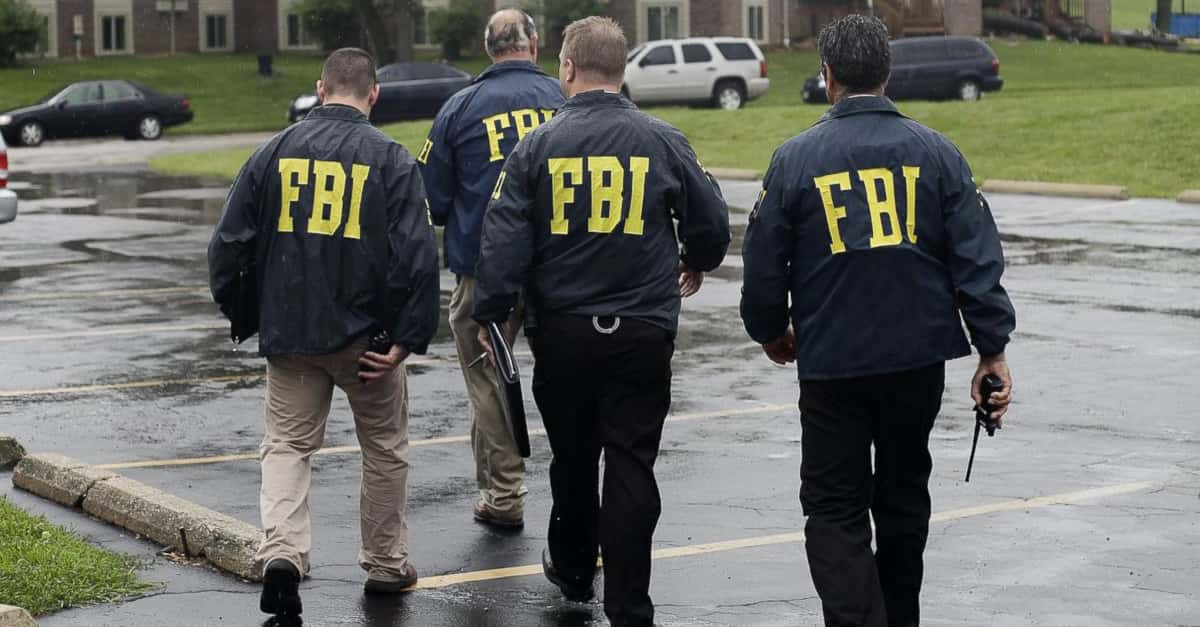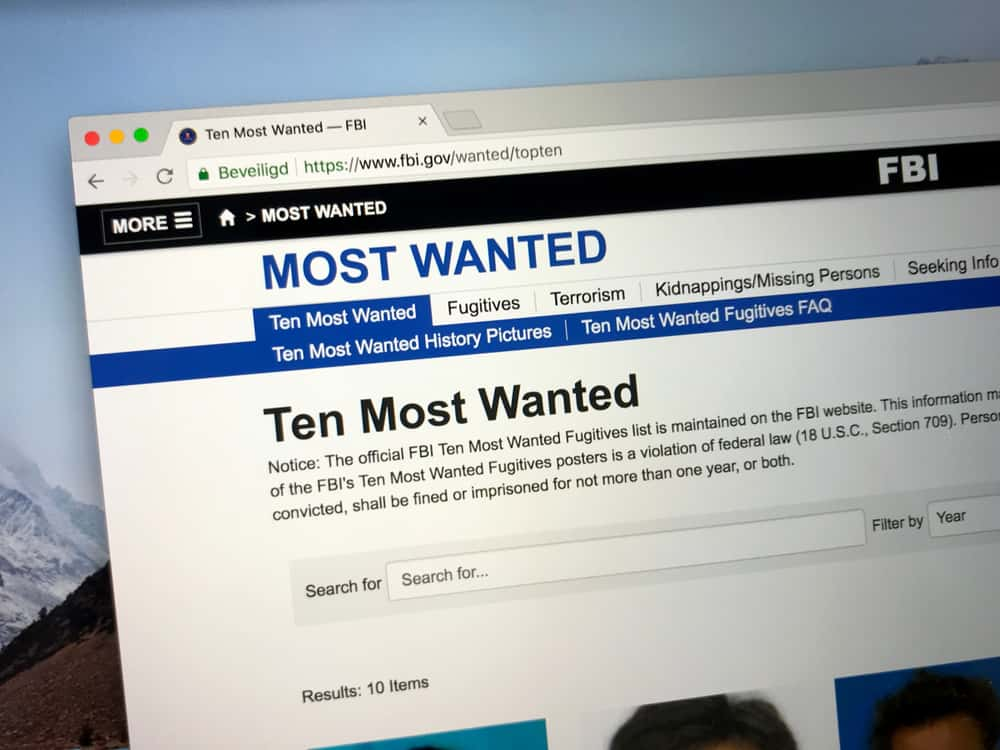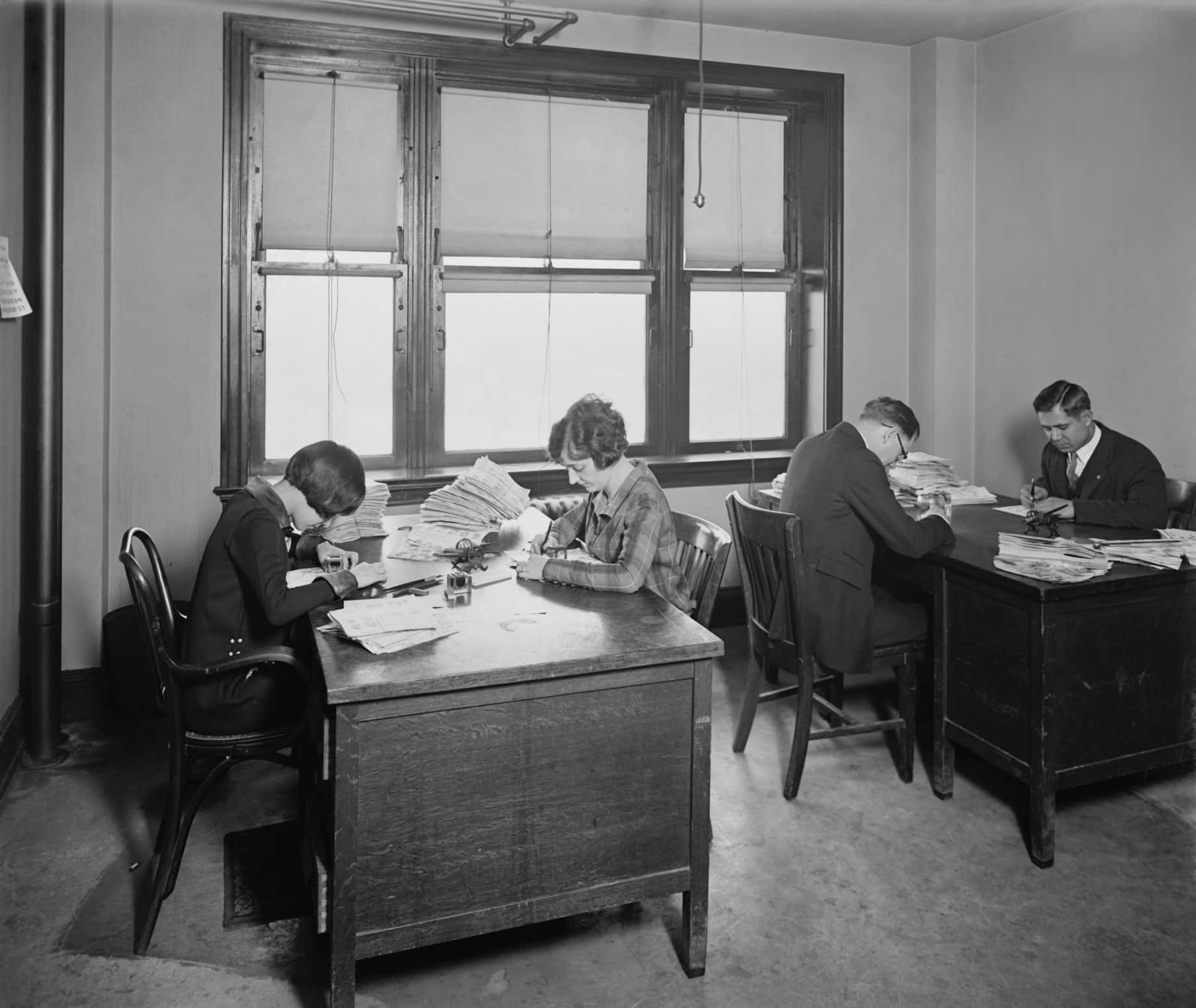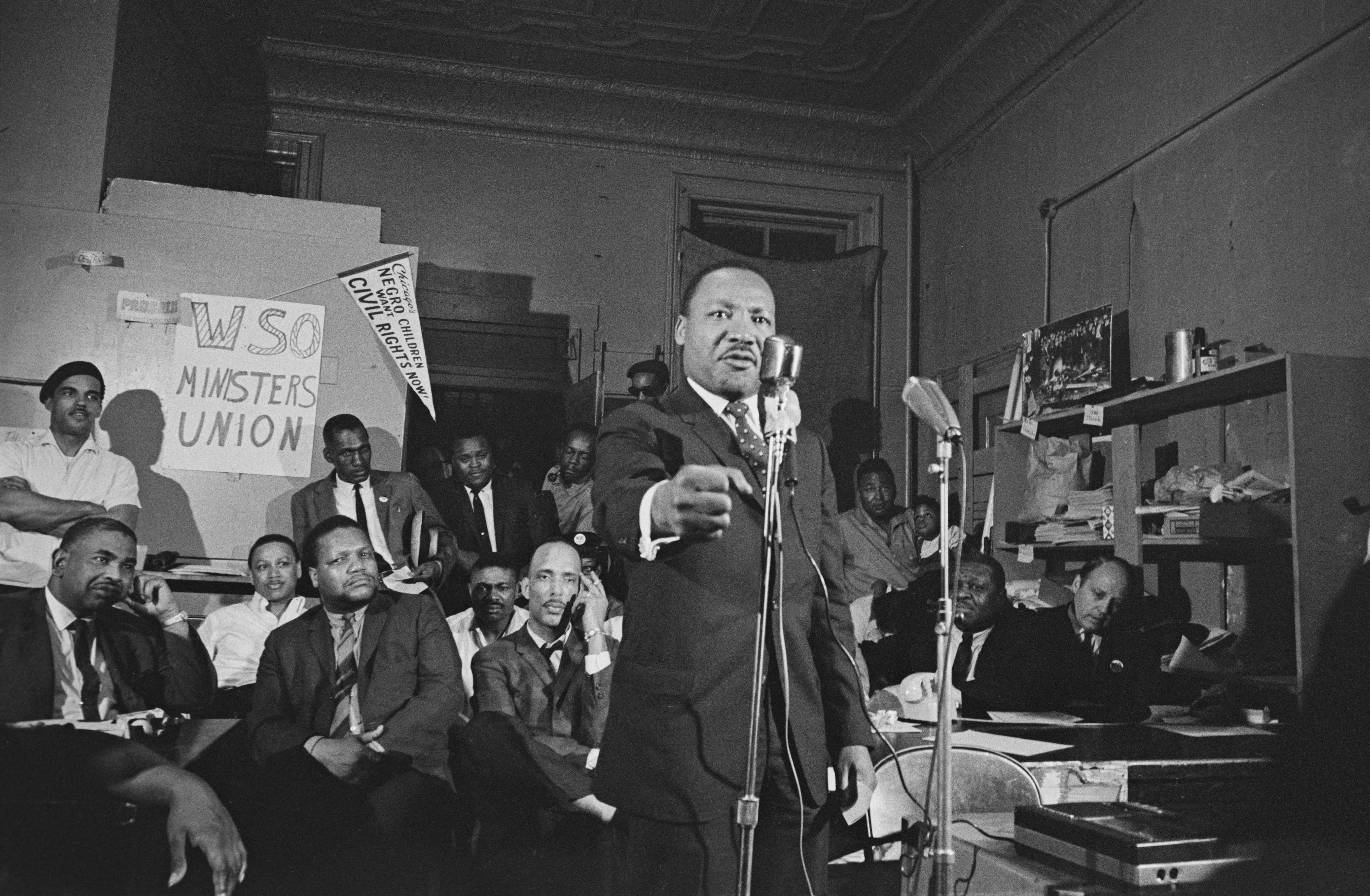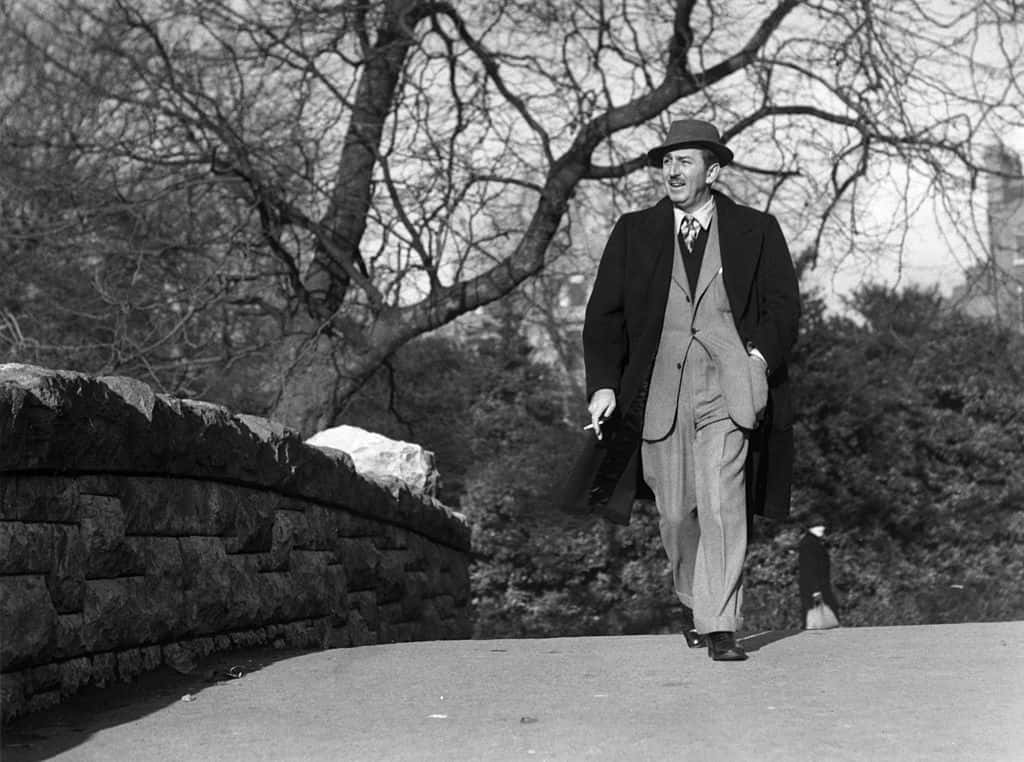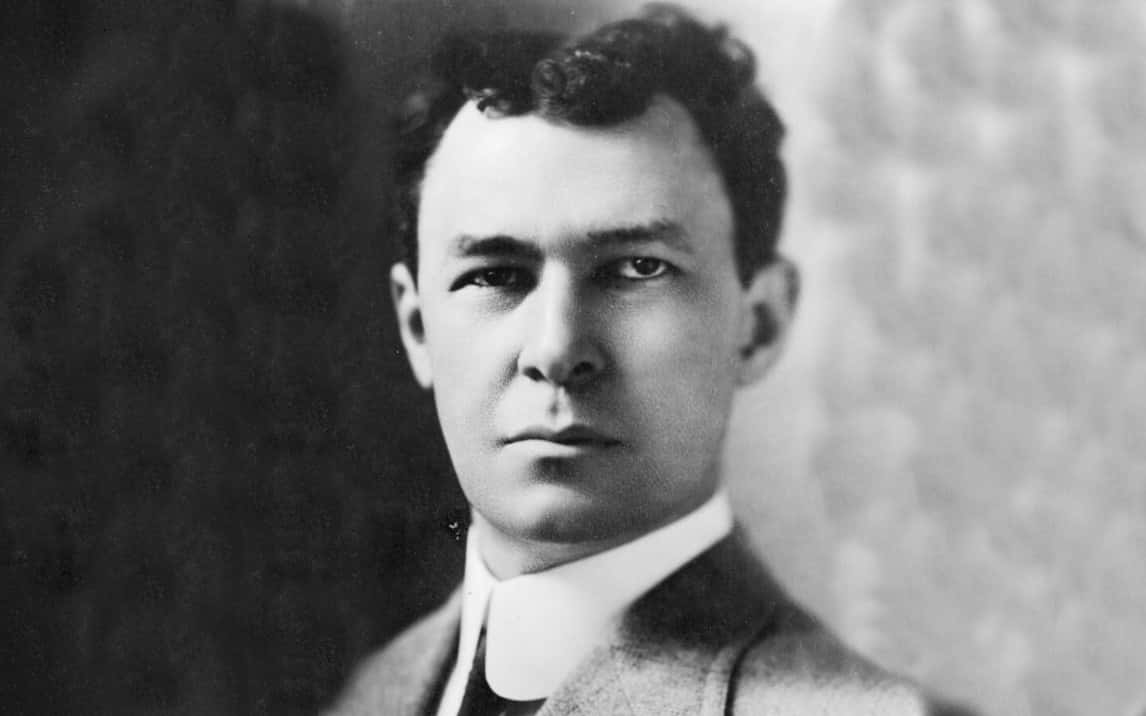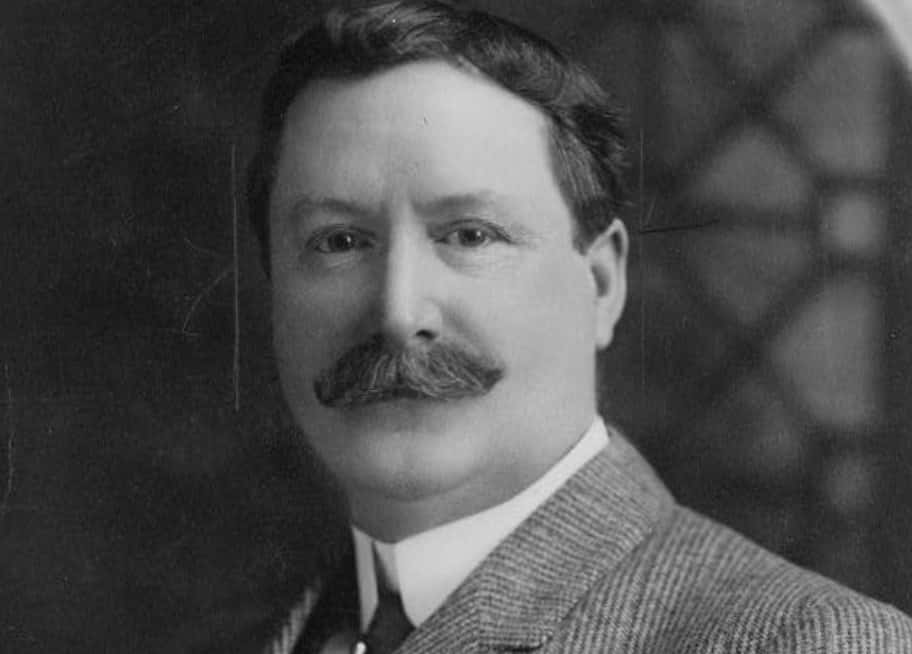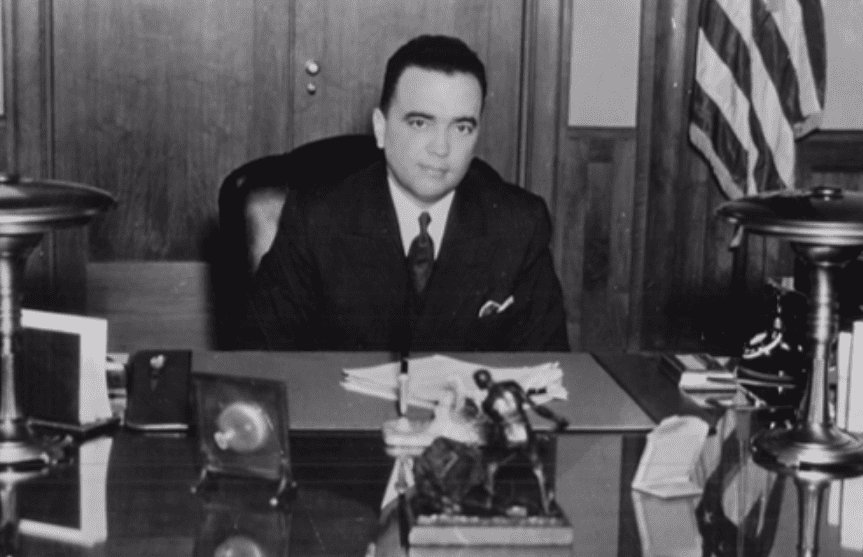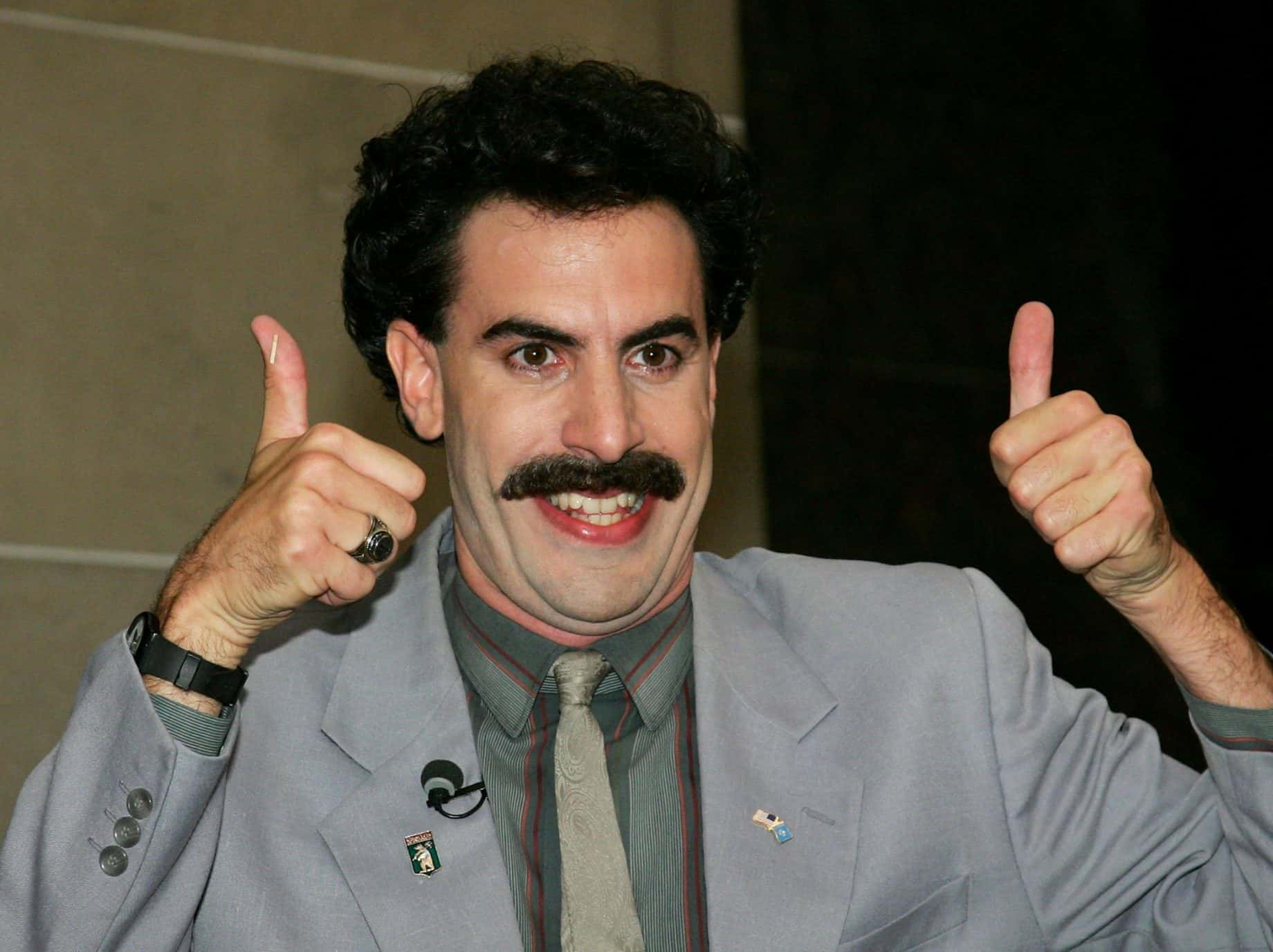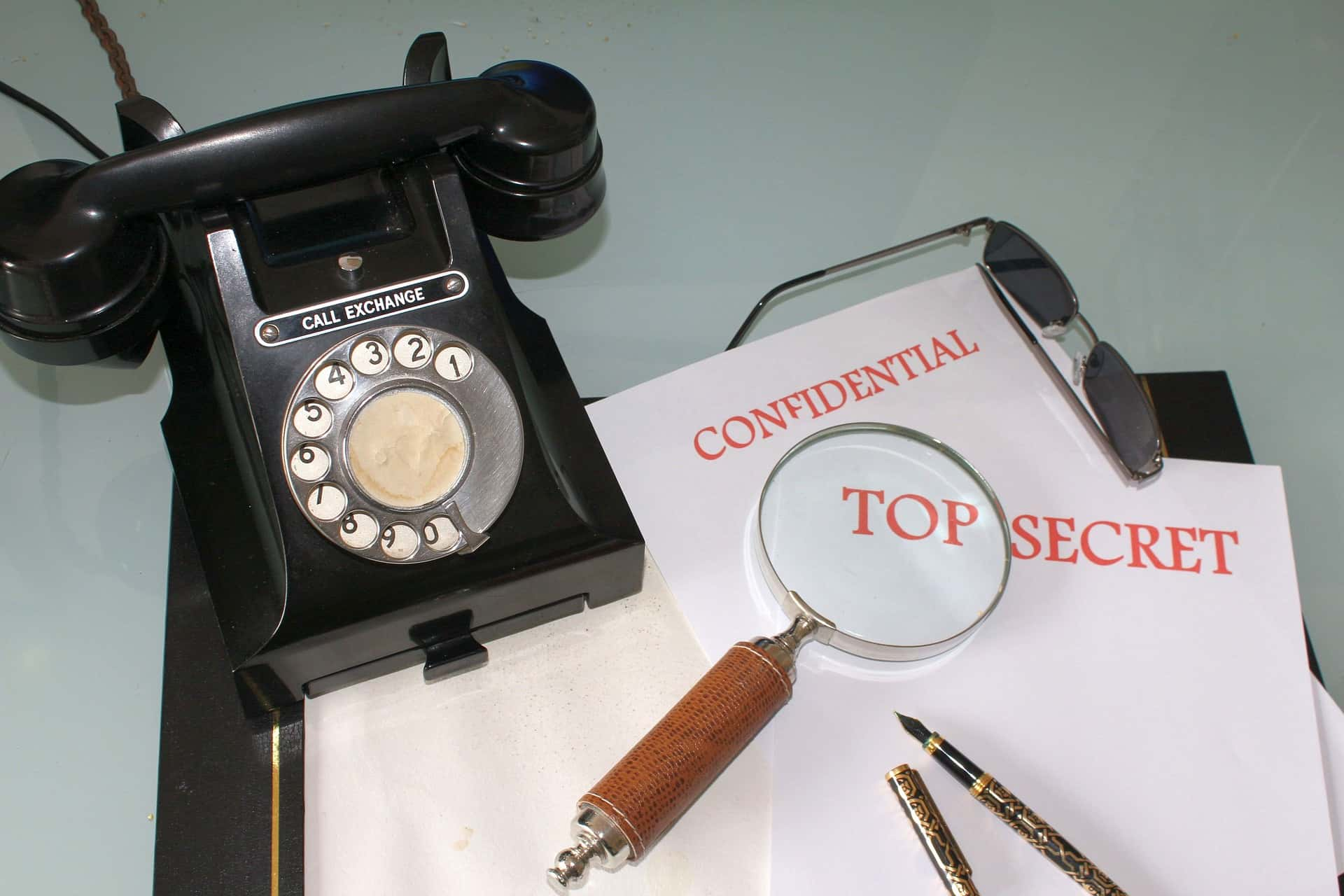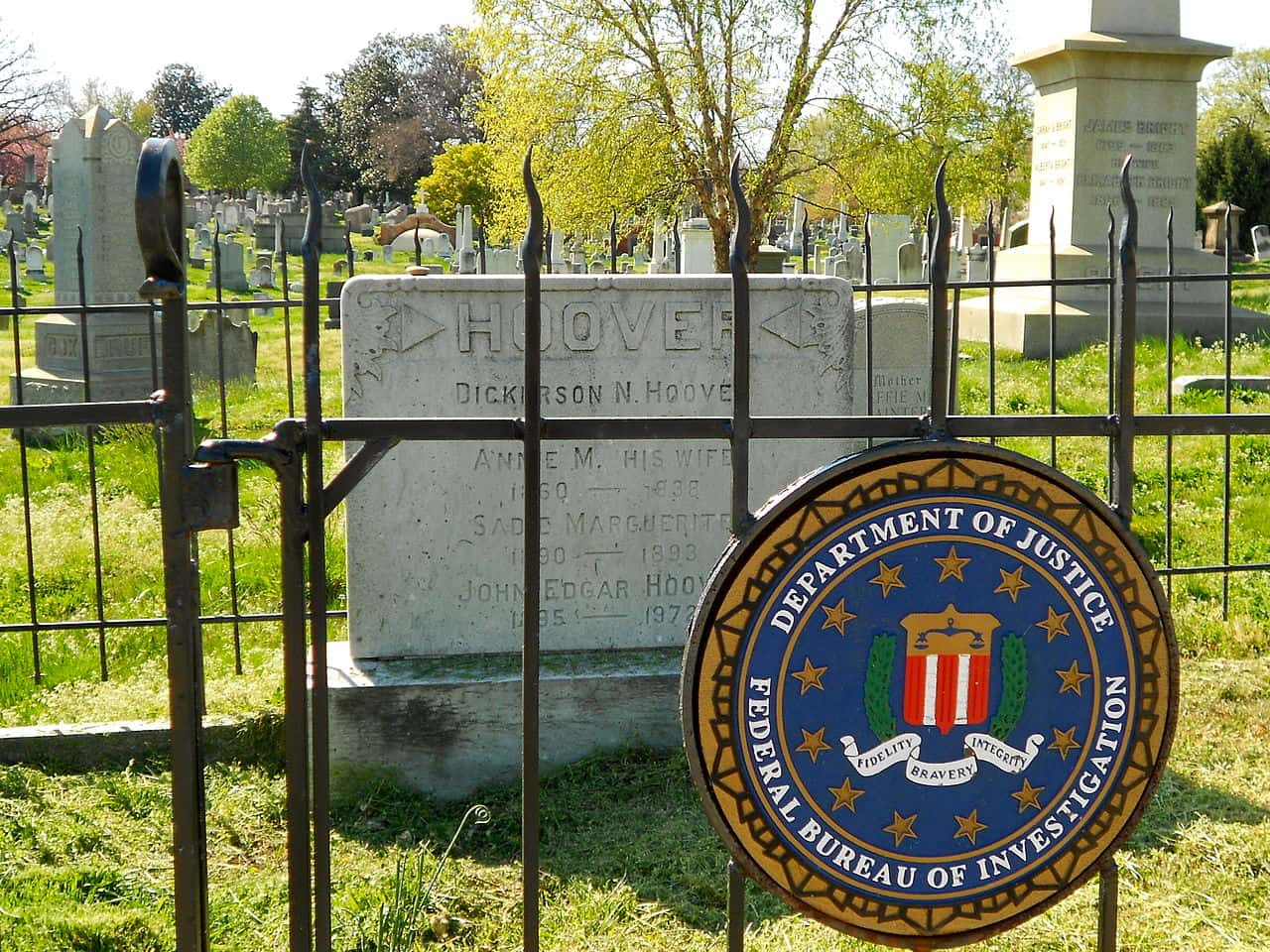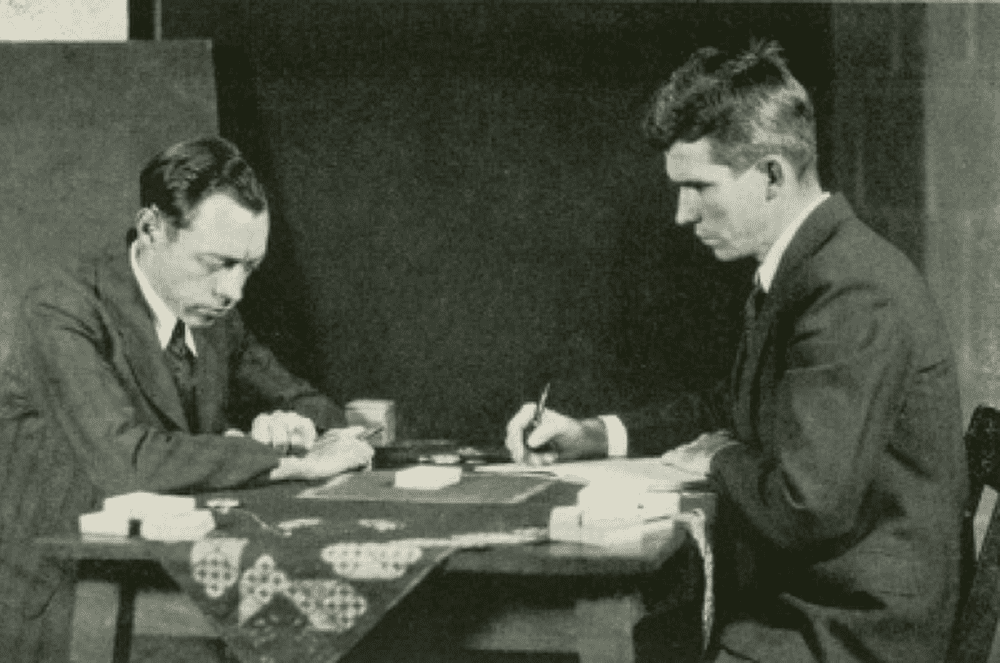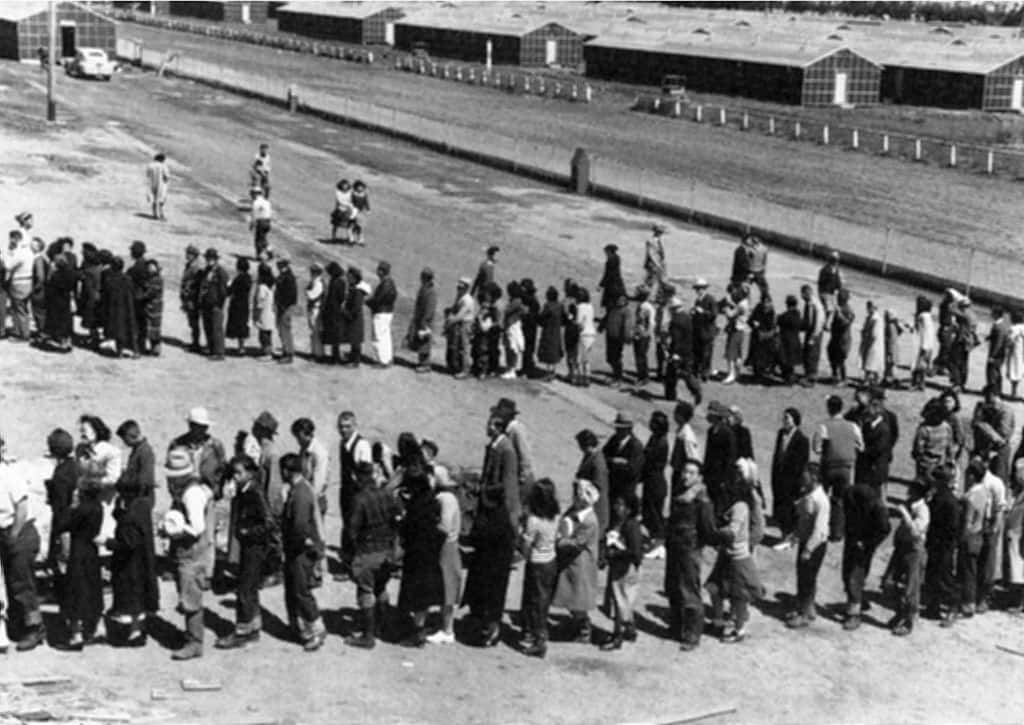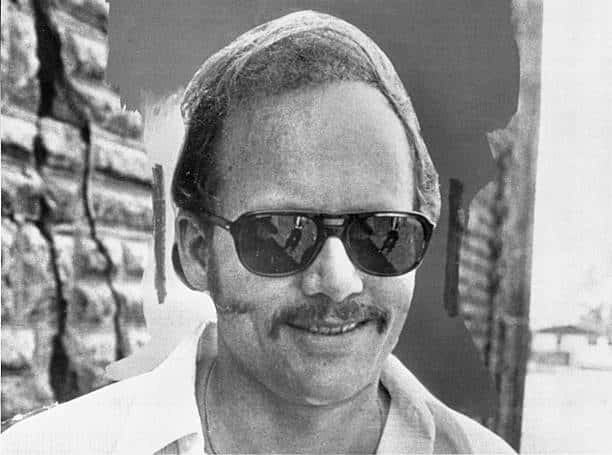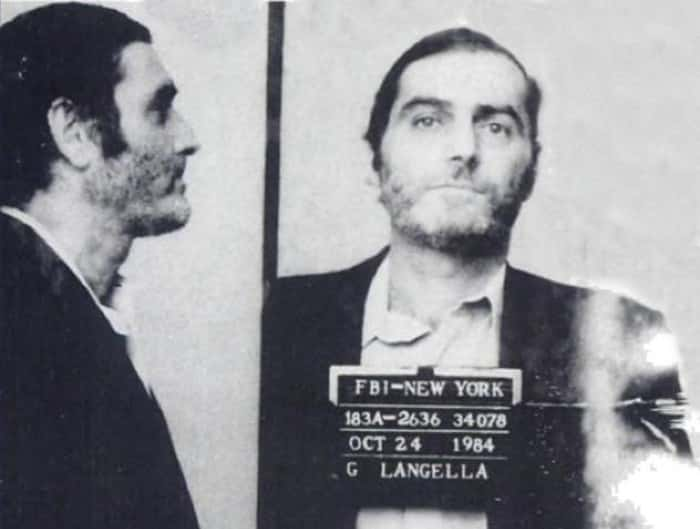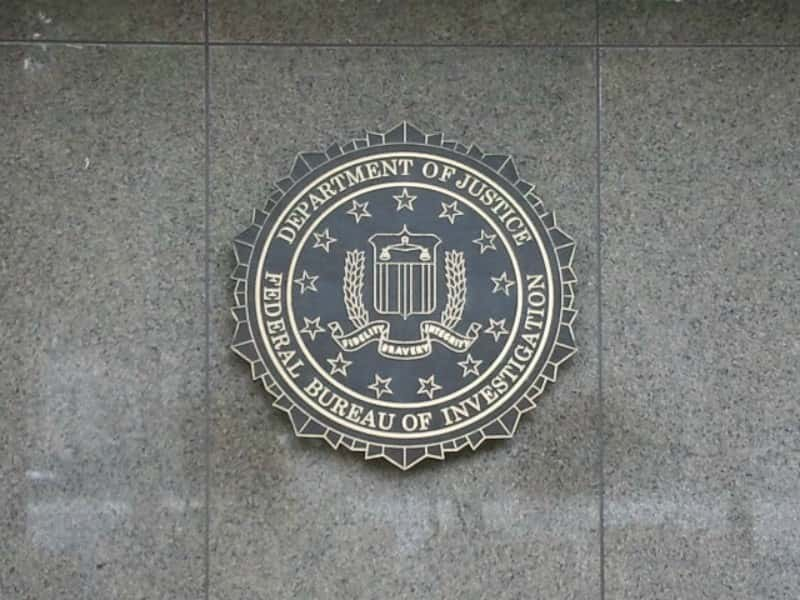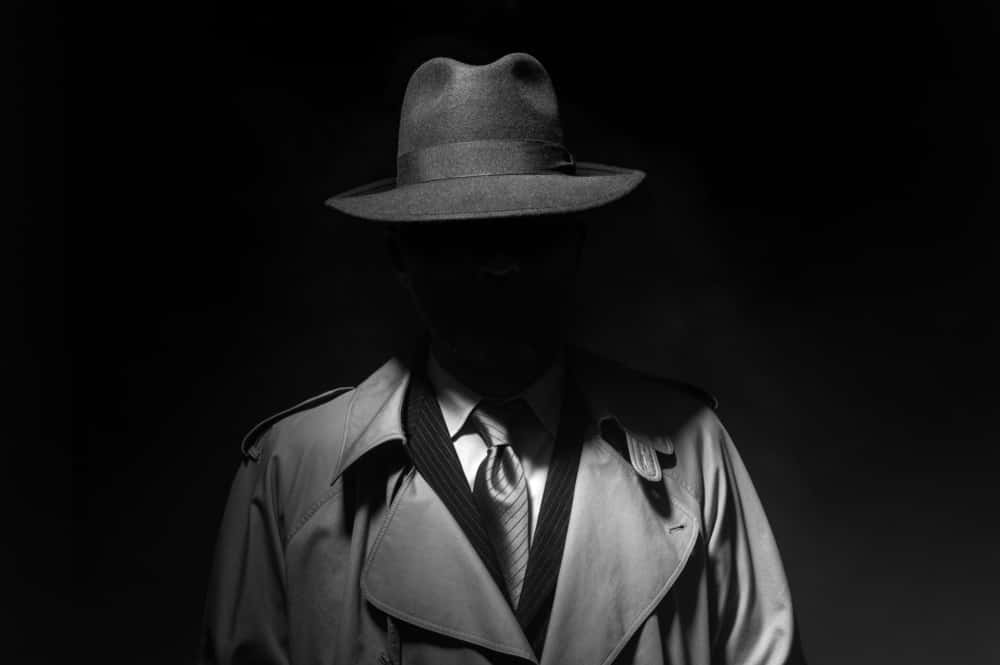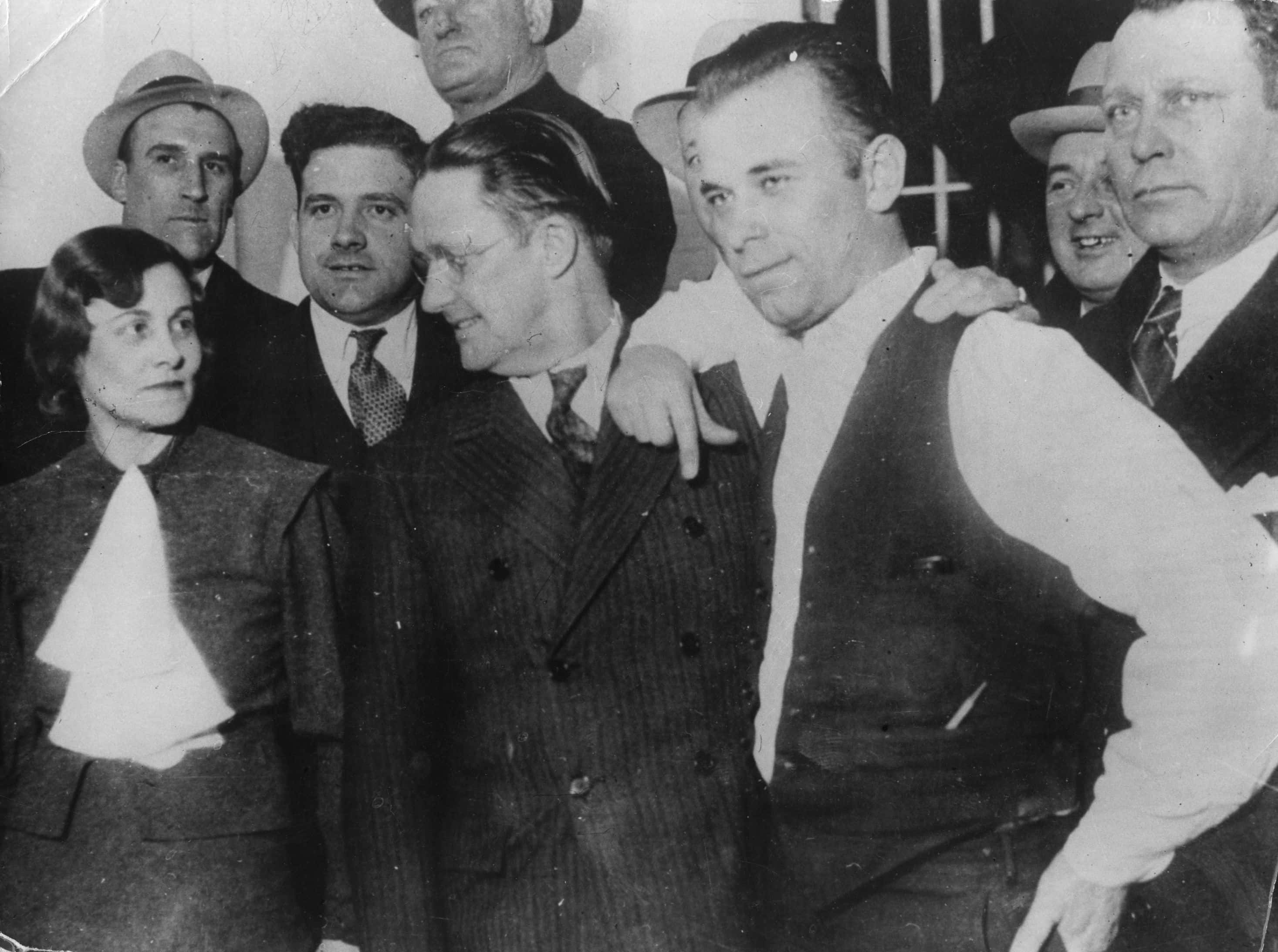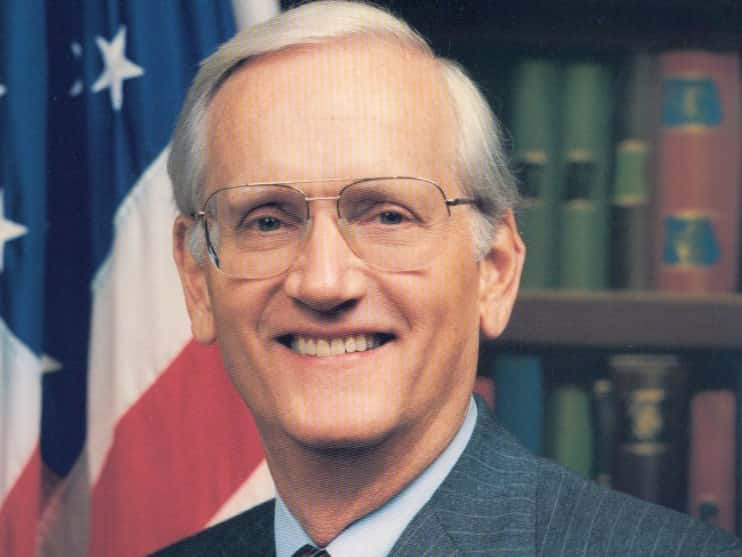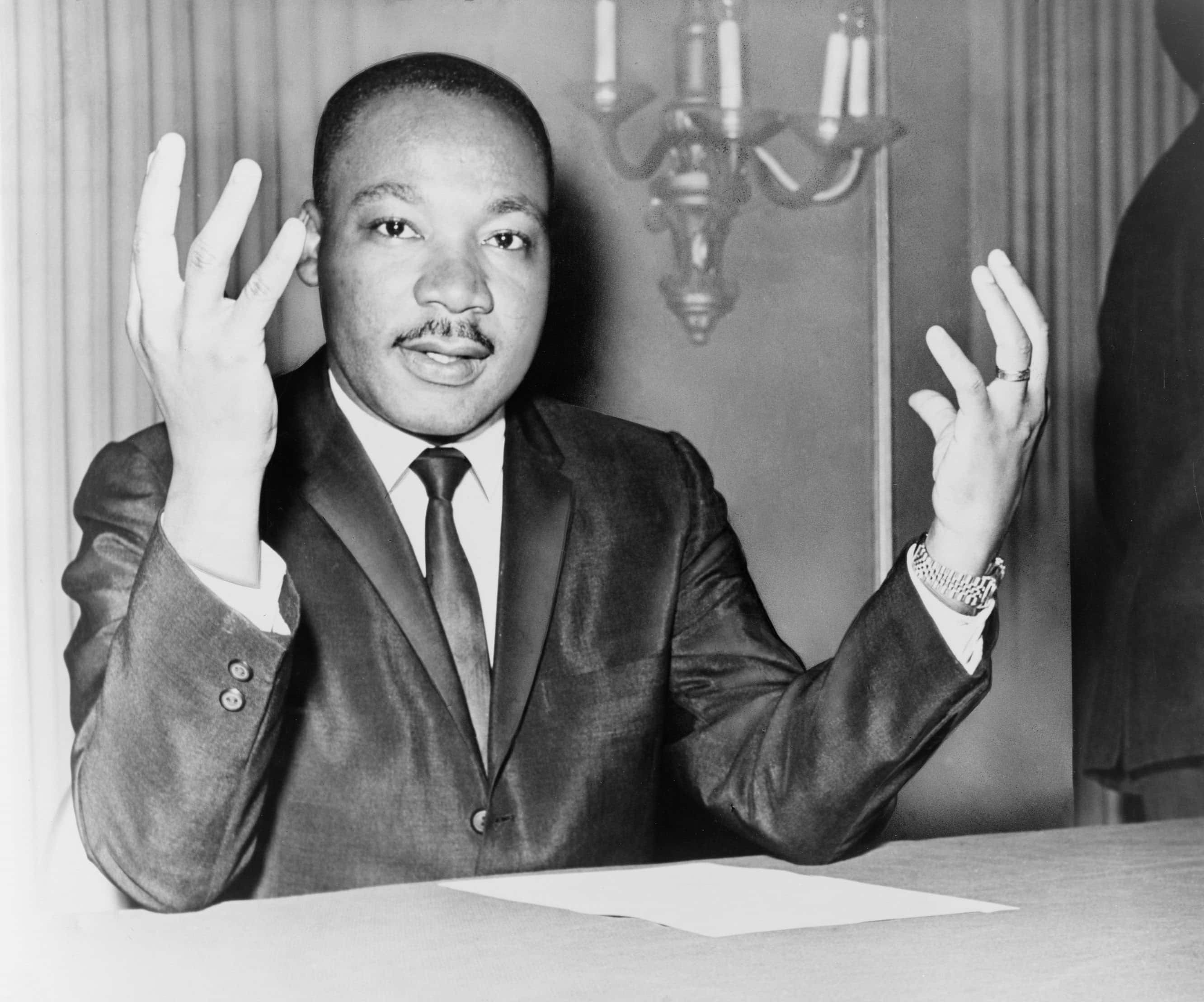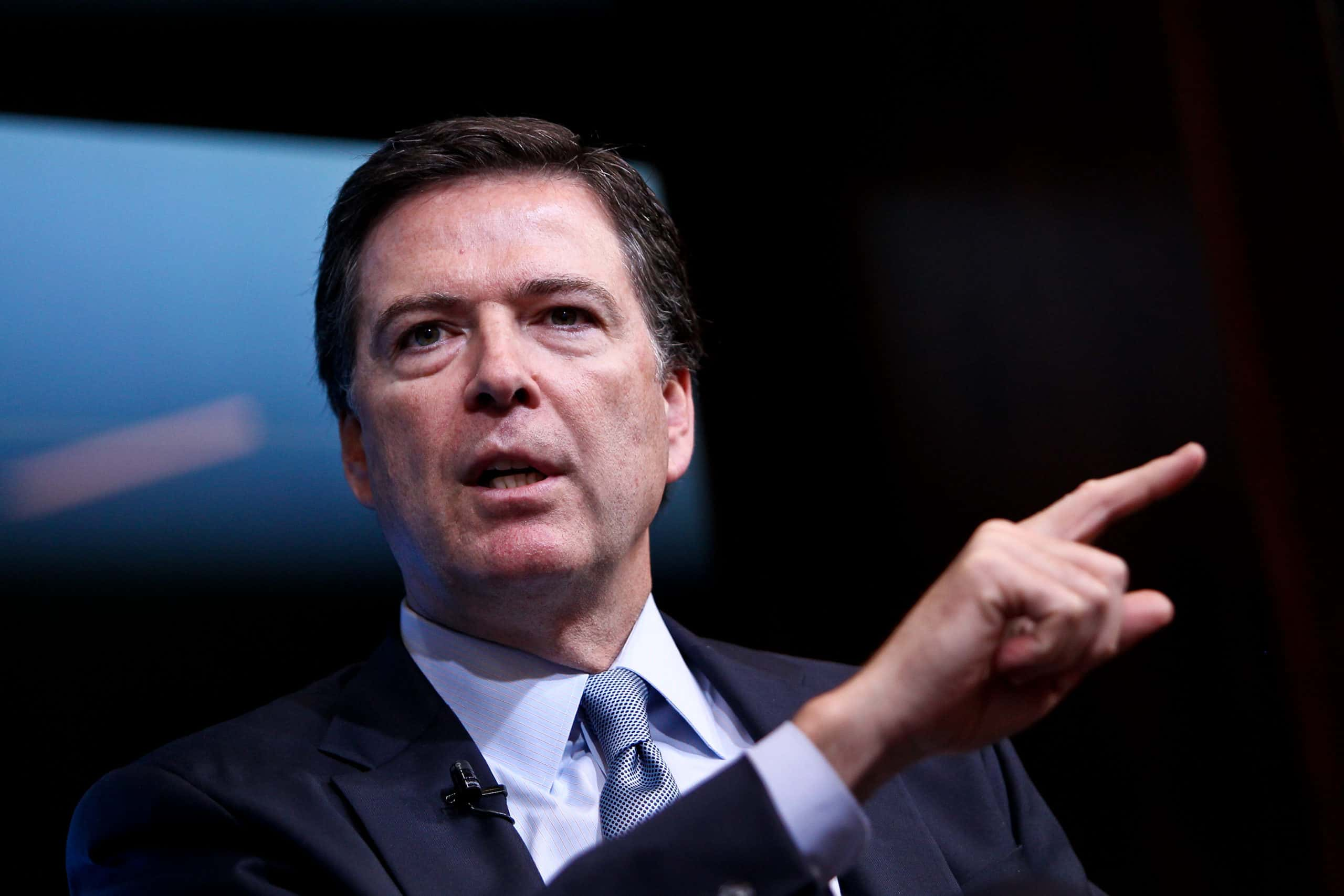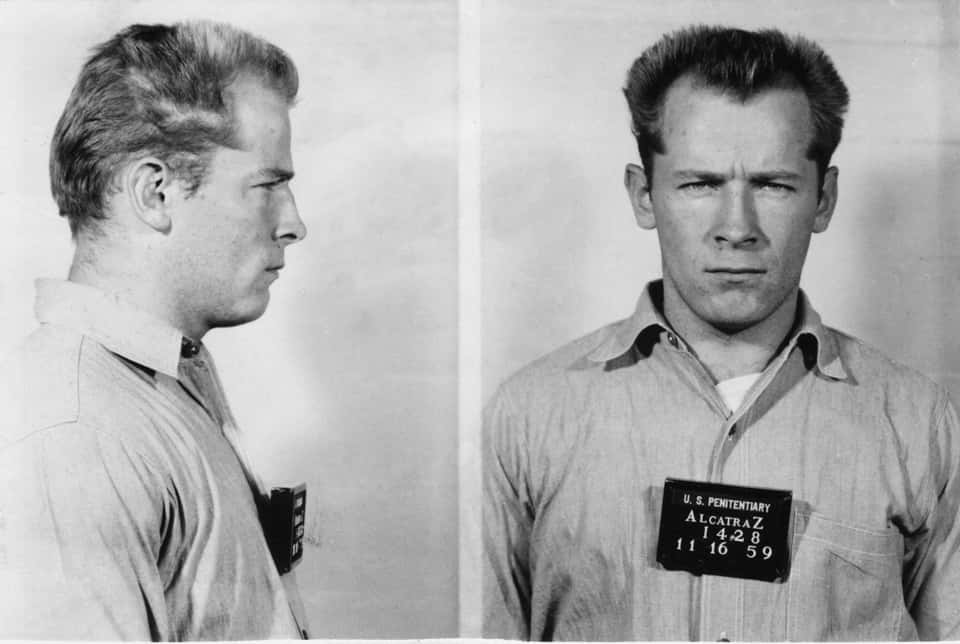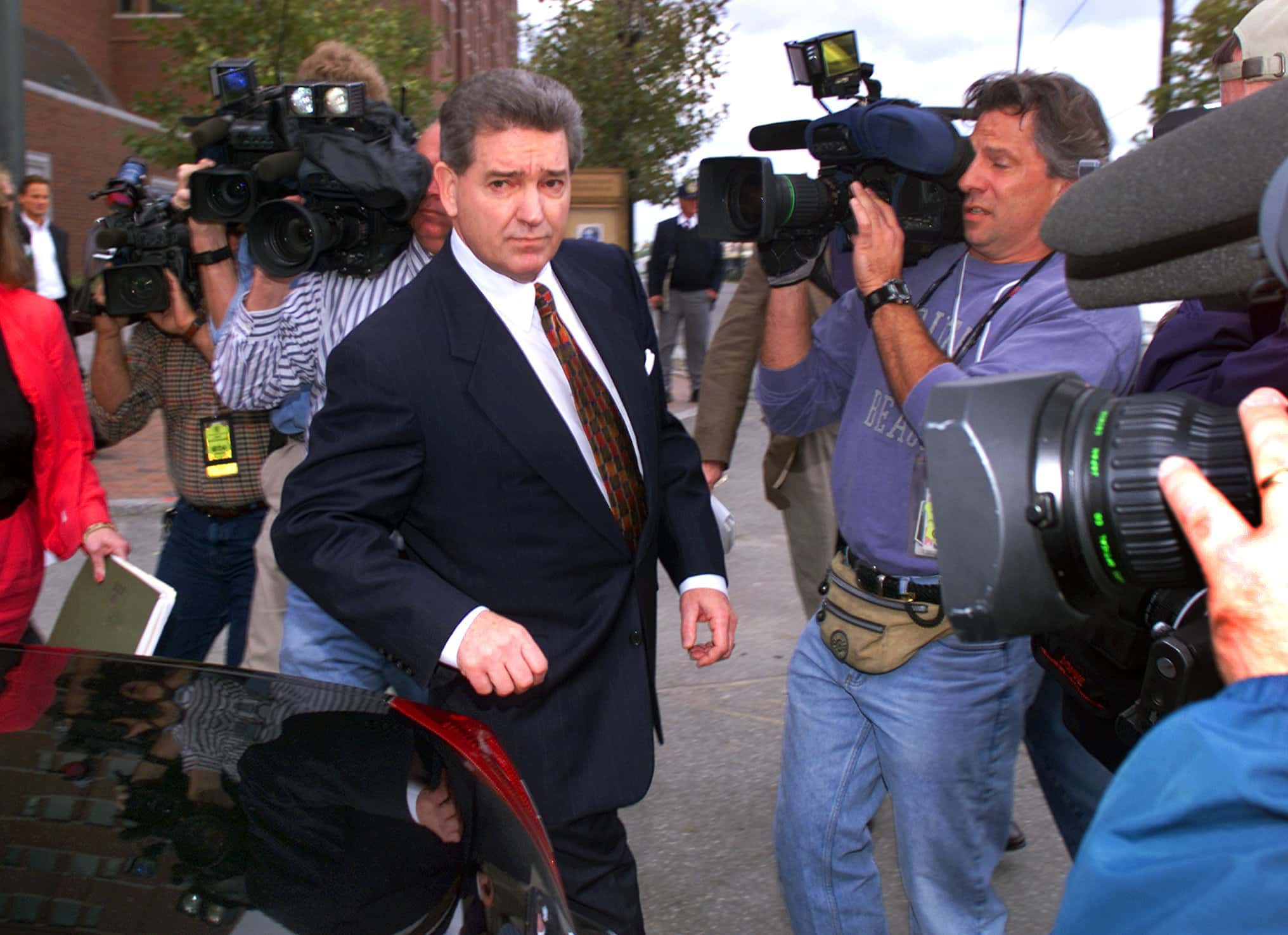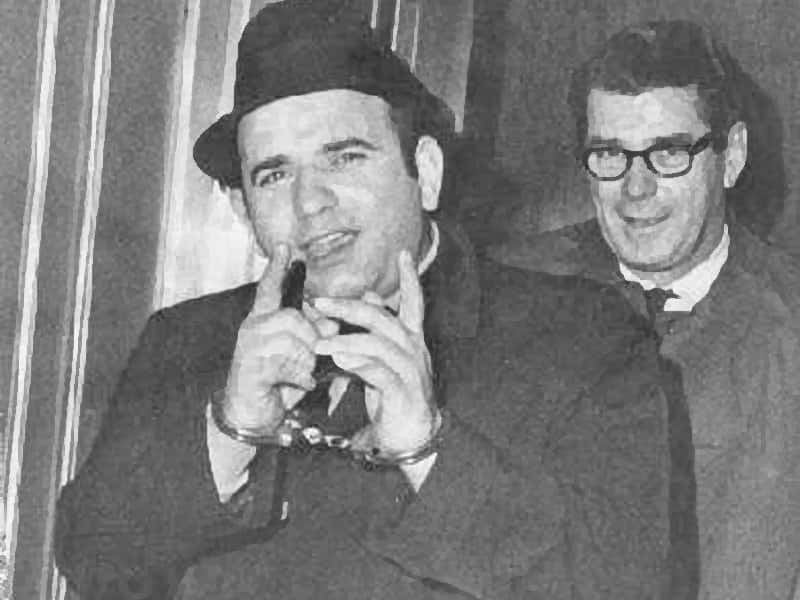First burning question: are the X-Files real? Second burning question: does Clarice Starling still work there? We're just kidding, of course, but there's a reason why the FBI appears so prominently in some of our most beloved pieces of pop culture: it's simply fascinating! One of the top policing organizations in the US, the Federal Bureau of Investigation has had a long, rocky past. Its survival was tested several times, its successes have been constantly compared to their failures, and they have often stood against other authorities within the American infrastructure. They have dealt with terrorists, spies, and drug cartels and more. Like...aliens? Kidding, again, of course—that is, until we finally uncover proof of or declassified documents about Special Agent's important work in the small town of Twin Peaks. Okay, fine, I'll stop with the pop culture references—for now. Here are 42 covert facts about this much-storied organization.
42. Humble Beginnings
Nowadays, the state-of-the-art FBI Laboratory employs over 500 scientists in their efforts to deal with their many cases. Pretty impressive, given that in 1932, the FBI Laboratory was inside a single room and was run by a single technician named Charles Appel. On top of that, Appel was using borrowed equipment during his time there, and the "Laboratory" also doubled as a flaming lounge.
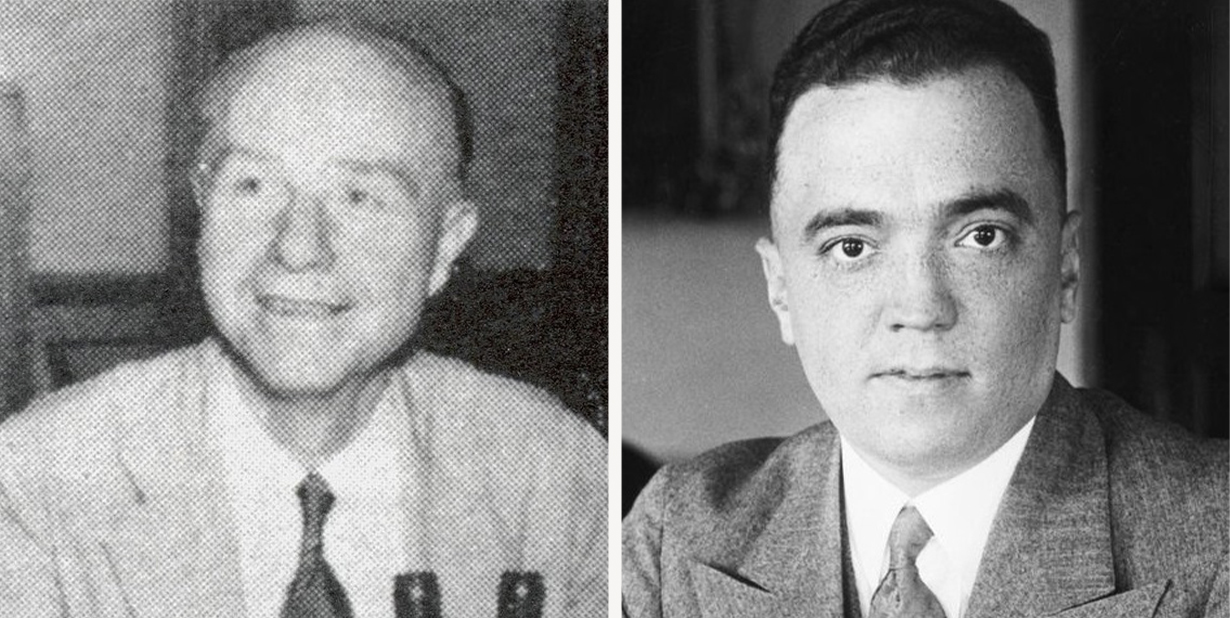
41. 10-4, Good Buddy
As you can imagine, the FBI has its own special language. They give nicknames to all kinds of things: an FBI car is known as a "Bucar," while a "brick agent" is an investigator who works on the street level. Interestingly, there’s a unique nickname given to the FBI by other agencies: “Famous But Incompetent.” Ouch.
40. Pretty Good Stats
The FBI has put more than 494 names on the Most Wanted List over the course of the Bureau’s existence. Of those names, 465 have been located or caught. But of course, that means that 29 managed to evade the law indefinitely.
39. Can You Repeat That?
The FBI first began wiretapping in the 1920s to arrest people smuggling booze during the Prohibition era. For those of you born after 2000, wiretapping means tapping into old-timey phone lines to listen in on what was being said over the phone.
38. They Can’t Arrest Me! It’s Against the Law!
This early use of wiretapping naturally led to serious discussion on whether it was lawful for the FBI to even do so, given concerns over privacy and surveillance (oh what a different time it was back then). In 1927, Olmstead v. United States was a case which involved a bootlegger who was detained based on evidence gained from wiretapping. Ultimately, the Supreme Court decided that the wiretapping did not count as unlawful search and seizure, which meant it didn’t go against the Fourth Amendment. The only condition they gave was that nobody’s home was broken into in the process.
37. We All Started Somewhere
The FBI was first established in 1908 during the presidency of Theodore Roosevelt. American law enforcement was still in its infancy during this time, as the entire Justice Department was only 38 people when the FBI was founded. However, with all the corruption which came with the expanding industrialization of the US, people saw a need for the government to actually try and enforce the laws it made.
36. Only a Offender Would Want Freedom!
One of the FBI’s biggest enemies in the 1960s was none other than the dangerous offender known as Martin Luther King Jr. In particular, his “I Have a Dream” speech convinced J. Edgar Hoover that King was the “most dangerous and effective leader” in the country. This prompted a campaign on the FBI’s part to tap King’s phones and label him a communist and a pervert. Maybe you were barking up the wrong tree, Mr. Hoover?
35. Sounds Like a Fair Exchange!
During the McCarthyism period in the 1950s, when people suspected of being communists had their careers ruined in a giant witch hunt, Walt Disney took action… by becoming an FBI informant. He reported the names of those people whom he suspected to be communists. In return, Disney got to film the Mickey Mouse Club at the FBI headquarters, though why it needed to be filmed there of all places is beyond us.
34. Who Knew That Intolerance Would Beget More Intolerance?
The first leader of the FBI (before it was known as the Federal Bureau of Investigation) was Stanley Finch. While Teddy Roosevelt wanted the FBI to regulate the system and halt corruption where it cropped up, Finch had his own agenda. His hangup was prostitution, writing frequently about how “evil” it was. Under his influence, prostitution rings were targeted, and the US passed the White Slave Traffic Act in 1910, which made it unlawful to transport women across state lines for “immoral purposes.” Sadly, this law’s biased undertones (it’s in the name, if you’re not sure) would lead to a lot of problems towards minorities.

History's most fascinating stories and darkest secrets, delivered to your inbox daily.
33. Aren’t We Supposed to be Incorruptible?
The first person to be called "director" of the FBI was William J. Burns. During his time, the biggest scandal before Watergate rocked the US. It started when oil companies were permitted to take oil from the US Navy’s reserve supplies at Teapot Dome, Washington, as part of a private deal on the hush. When Senator Burton K Wheeler began looking into this shady agreement, FBI Director Burns was sent to gather dirt on Wheeler to force him to keep things quiet. If you want to know more about it, just ask Milhouse.
32. Meet the New Boss, Same as the Old Boss
Unfortunately, the scandal couldn’t be buried. William Burns was confronted for his role in the Teapot Dome Scandal and was forced to resign. He was replaced by J. Edgar Hoover, who was the longest-running director in the FBI’s history—and sadly, he didn’t avoid falling into the pitfalls of corruption either.
31. Strangers in the Night, Indeed
Not even Frank Sinatra was immune from the FBI’s gaze. Being a friend to both John F. Kennedy and (allegedly) several known mobsters, it should come as no surprise that the FBI had been keeping a file on Ol' Blue Eyes practically since he first got famous.
30. Who’s in Charge, Here??!
In the aftermath of President Kennedy’s passing, Lyndon Johnson arranged for the FBI to take on the investigation into Kennedy’s execution. Due to the confused response by the various law enforcement agencies in the wake of the execution, Congress passed a law in 1965 which ensured that the FBI would be in charge of investigations into the deaths of federal officials, especially if the passing is due to manslaughter.
29. Borat: FBI’s Most Wanted
In the 2000s, the FBI managed to find the time and resources to create a file for British actor and comedian Sacha Baron Cohen. As Borat, he traveled across the United States, racking up furious officer calls and even getting the FBI to start following him. He actually had to disappear from his hotel just before the FBI could track him down! Imagine that phone call to the Kazakh embassy.
28. No Girls Allowed!
When J. Edgar Hoover was Director of the FBI, he made it clear that he had an issue with women working in the Bureau. There were three women working as FBI agents in the 1920s, and they were only around because they’d been hired before Hoover’s promotion to Director. Hoover expressed his bias by forbidding them to smoke at their desks (a privilege reserved only for the men) and only allowing them to wear skirts or dresses while at work.
27. Someone That Smart is Up to No Good!
Interestingly, Albert Einstein was another man who caught the FBI’s attention in a big way. Given his intelligence and his background, the FBI was obsessed with keeping Einstein away from working with the US government. Despite finding no evidence to confirm their suspicions, the FBI eventually collected a file on Einstein no less than 1,800 pages long!
26. Spy Wars
Throughout the FBI’s history, they have had to deal with espionage within the United States. No less than eight German spies were detained by the FBI after they were discovered to be plotting sabotage within American territory. Six of those agents were executed.
25. Who Goes Power-Hungry in a Decade, Amirite?
J. Edgar Hoover spent over half his life—48 years—as the leader of the FBI. That was such an insanely long time that after Hoover finally retired (and only then because he passed), a rule was put in place by Congress that directors of the FBI can only hold the position for ten years.
24. Now Let’s Try Mind Reading!
Extrasensory Perception (ESP) was a topic that greatly excited the FBI back in the 1950s. They were convinced that if they could harness ESP, it would provide a huge advantage in their efforts. They spent the late 1950s experimenting and investigating ESP before ultimately giving up in 1960.
23. You’re Our Enemies!
Starting in 1939, the FBI began making lists of potential threats to the United States, even as WW2 took the world by storm. Most of the people on the list were Japanese-American, with some German-Americans and Italian-Americans as well. Two years later, after Pearl Harbor, the people on the lists were detained in a series of mass arrests. President Roosevelt ordered the complete removal of Japanese-Americans from the West Coast. The FBI continued to monitor those people being held in camps, and recruited informants to report on "troublemakers."
22. Never Mind, We’re Your Friends
In a case of extreme irony, the FBI was later used to try and help the Japanese-American detainees relocate safely back to their old communities and protect them from hateful attacks by their white neighbors. Sending a confusing message, there, Hoover.
21. Someone Tell Them What an iPod is!
Incredibly, the FBI didn’t switch from paper files to digital until 2012! Like that one old relative who insists on using a film camera at family reunions, the FBI was very slow to adapt to new technology. To be fair, the FBI was originally intending to upgrade back much earlier… three years earlier to be more precise. However, computer coding issues put them behind schedule (and over budget). We’d like to think that the FBI director was furiously yelling into the phone at the Apple or Windows help desk to fix their problem (the phone would also be a rotary, for the record).
20. Your Agent is Bothering Us!
In 2006, the FBI was determined to uncover terrorist activity amongst America’s Muslim community, so their strategy, seemingly, was to pick a mosque at random and send in an undercover agent to spy on the worshipers. Their chosen "agent" was a convicted forger named Craig Monteilh. At first, Monteilh was content hanging out at the mosque most of the day, leaving recording equipment around disguised as his keys (you’d think that trick run out a while ago). Eventually, however, Monteilh got impatient and tried to entrap the worshipers by openly discussing weapon and terrorist activity. The worshipers, naturally, got scared of this creep and called the FBI on him! The entrapment case fell apart, and to add insult to injury, Monteilh himself ended up suing the FBI. Red faces all around, no doubt.
19. Merry Christmas, FBI!
It turns out that the fervently anti-communist J. Edgar Hoover saw communist threats everywhere during his tenure as the Director of the FBI. One such situation came from a 1947 movie called It’s a Wonderful Life. Seriously. This charming little Christmas film was accused of promoting communist messages through its negative portrayal of bankers in the film’s villain, Mr. Potter. And here we were thinking it was about the inherent value in every life, great or small! Silly us!
18. Because "Irishman" was Slightly too Transparent
In the 1960s and 1970s, proud Irish-American Danny Greene was one of Cleveland’s most well-known criminals. After he’d gotten himself ousted from the International Longshoreman’s Association (and gotten a file with the FBI in the process), he ended up being approached by the FBI to become an informant! Greene accepted, regularly providing information on anyone who wasn’t a friend of his. His FBI codename was reportedly Mr. Patrick, for obvious reasons.
17. I’ll Inform on ‘Em After I End ‘Em!
While Greene was an informant, however, he found himself embroiled in a battle with the Cleveland Mafia. With his own gang uniting with his one friend within the Cleveland Mafia, John Nardi, Greene took on the rest of the Syndicate in a gang battle which gave Cleveland the nickname "Blast City." Green survived multiple execution attempts, proudly boasting to the media, daring his enemies to try and end him.
16. The Last Laugh Goes to…
Ultimately, the unkillable Danny Greene proved able to shuffle off his mortal coil. Mafia hitman Ray Ferritto, however, did not have long to celebrate his achievement. When he was detained by the Cleveland authorities, the Mob put out a contract on him. Ferritto turned himself over to the FBI, Greene’s former friends, for protection. Ferritto’s information led to the Mafia Commissions Trial in 1985, which put Mafia families across the US on trial and wiped out the Cleveland Mafia, which no doubt must have made Greene’s ghost chuckle.
15. The 16-Hour Work Week
It turns out that if you want to join the FBI, you don’t have to be a hard-boiled detective with no life except the people you're hunting. The Bureau actually offers an opportunity to work part-time to allow for much-needed R&R with the family and time away from the office. Given what kind of files are usually on those office desks, we can only imagine how much a vacation would be welcome!
14. Might as Well Search for Bigfoot!
Remarkably, throughout the 1950s, J. Edgar Hoover ensured that the FBI not only didn’t lift a finger to stop the Mafia, but actively denied that it was a thing. Hoover openly called any evidence of the Mafia "baloney." This includes evidence collected by his own agents, as well as evidence from the Special Committee on Organized C*ime in 1950.
13. Fallen in the Line of Duty
During the 9/11 attacks on the World Trade Center in New York, FBI agent Leonard W. Hatton Jr. was part of the rescue effort to get people out of the South Tower. Hatton Jr. continued to put his own life at risk to get others out, ultimately giving his life when the tower collapsed. Hatton Jr. has since been hailed as a hero, and he's honored at the National 9/11 Memorial.
12. Spell ‘Counterproductive’
The FBI’s hunt for John Dillinger, which concluded with the famous incident where he was shot by authorities while leaving a cinema, ironically cost four times more money than Dillinger ever take!
11. Who Watches the Watchmen?
In 1987, William Sessions took the job of FBI Director. As a former federal judge, Sessions was judged to be a fitting choice. However, he used his position in the FBI to improve his personal home, and even used FBI resources for his own vacations and trips. This wasn’t just a huge breach of ethics within the FBI, it was a breaking of federal law (which you’d think a judge would know not to break).
10. Bill vs Bill
Despite evidence of his corruption and misuse of authority, William Sessions refused to resign. He kept up this stubbornness for six months during an investigation into the FBI. Finally, however, President Bill Clinton personally called Sessions to fire him from his position. It was the first firing of an FBI director in the organization’s history.
9. Lots of Love, Signed Hoover
In fact, Hoover went one step further in his vicious campaign against King. He allegedly sent an anonymous letter to the good doctor, intimidating that King had “just 34 days” to take his own life, before his “filthy, abnormal fraudulent self is bared to the nation.” We found no record of King’s response to such a letter, though he was probably too busy to read anything sent to him by such a small-minded, paranoid lunatic as the man in charge of the FBI.
8. This Isn’t What I Signed Up For
In one of the more baffling investigations carried out by the FBI, two years of intense analysis and research were put into translating the lyrics of the hit 1960s song “Louie Louie.” The garbled words were widely rumored to contain pornographic language, which led to people expressing their fury in letters to the feds. The investigation lasted two full years, and finally admitted that the song was “unintelligible at any speed.” Money and time well spent!
7. Learned it from Ed Snowden
Former FBI director James Comey has publicly confirmed that he covers his personal PC’s webcam with tape, just in case someone is on the other side looking back at him. He even went one further and declared that every sensible person should do the same. Well, he would know.
6. Just ‘Cus I’m Paranoid Doesn’t Mean I’m Wrong!
American protest singer Phil Ochs made his name writing hundreds of songs in the 1960s and 1970s. However, by the mid-1970s, his drinking had become a serious problem, and he terrified his friends and family with wild claims of being stalked by the FBI and the CIA. Ochs tragically took his own life after a long bout with depression and other psychological issues. It was only after his passing that it was revealed that the FBI had a 500-page file on him which they’d been working on for years, even after he had passed.
5. Leave Ernie Alone!!
Ochs wasn’t the only person to have such a crazy feeling of being followed and stalked. In the last year of his life, renowned writer Ernest Hemingway had some choice words to describe how things were going: “They've bugged everything ... Everything's bugged. Can't use the phone. Mail intercepted." Since this was coming from a hard-drinking man who suffered from depression (this seems sadly familiar), Hemingway was persuaded to take shock therapy. Sadly, the treatment did not assist him, and Hemingway would go on to take his own life. Two decades later, it was revealed that Hemingway had been absolutely right in his convictions; the FBI had been tracking him since the 1940s, and had been tapping his phones, even the one in his room at the psychiatric hospital!
4. So No More Tattoos?
While you might hope that the FBI’s Most Wanted Criminals List is made up of those people whose capture is of the highest priority, there is another less-known factor that goes into organizing said list. According to Michael S. Schmidt, a reporter for the New York Times, the FBI picks “dangerous fugitives who… could be recognized by the public because they have distinctive physical features.” So if you’re a offender with an ordinary face that blends into any crowd… congratulations, you might be too difficult for the public to spot!
3. Old Neighborhood Friends
FBI agent John Connolly was responsible for taking in renowned bandit Whitey Bulger as an FBI informant. Connolly had grown up knowing Bulger, and Connolly showed his appreciation for Bulger’s information by offering him protection. Bulger used this position to become the most powerful bandit on the US east coast, all while Connolly kept him safe from prosecution.
2. The Tide Turns
Eventually, other agencies began sniffing after Bulger, but Connolly had hooked his wagon to Bulger’s, and so he would warn Bulger about attempts to entrap or arrest him. Given this information, Bulger targeted people who would have otherwise testified against him in a trial, which included the execution of John B. Callahan. Eventually, however, things proved too much, and Bulger was forced to go on the run, disappearing for decades. Connolly was not so lucky: he was fired from the FBI, found guilty of obstruction of justice, and assisting Bulger in manslaughter. He is still in lock up as of 2018.
1. How Much to Buy My Life Back?
In one of the lowest points of its history, the Bureau allowed four innocent men to be convicted for the manslaughter of Edward Deegan in 1965. Deegan was a known offender who was actually ended by Winterhill gang member Vincent Flemmi, who was an FBI informant. They protected him from prosecution so they could keep getting information out of him. The four innocent defendants, meanwhile, were sentenced to life in lock up. After the FBI cover-up was revealed, the US Government paid $100 million to the defendants and their families. By that time, however, two of the men had been released after serving nearly 40 years in lock up, while the other two had passed behind bars.
There's always more to learn about an organization like this. Check out this article for more undercover facts about the FBI.

